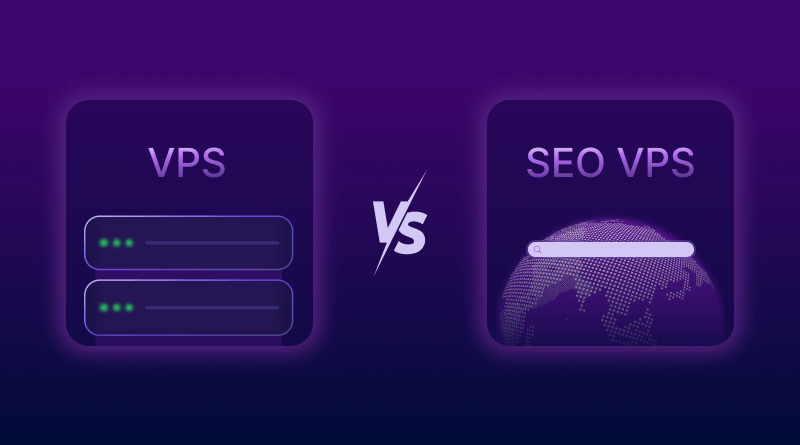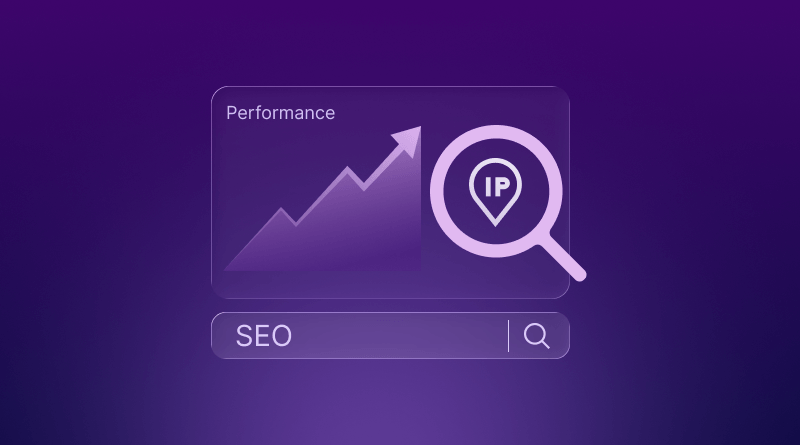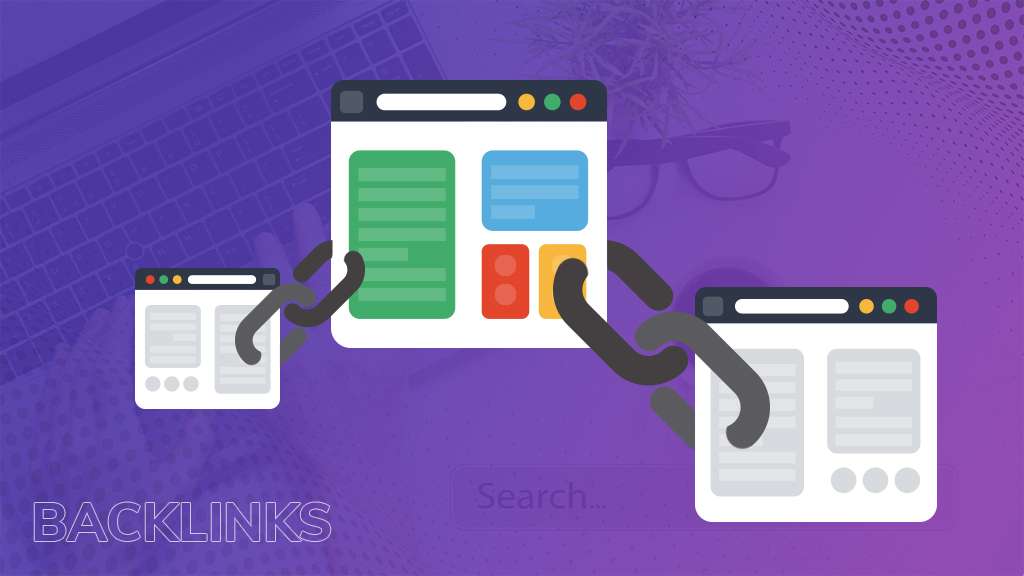
Imagine you have spent months building the perfect affiliate site. Your content is polished, your backlinks are clean, and your on-page SEO is spot-on. Everything is exactly where it should be. But one morning, you check your dashboard and your traffic has crashed. Not dipped. Crashed. Your rankings didn’t just slip a few positions; they disappeared.
You double-check your content. Perfect.
You run your backlink audit. Looks solid.
Everything seems right, yet something is very wrong.
Welcome to the Bad Neighborhood Effect, a silent SEO killer most website owners don’t even know exists.
The truth is, your hosting environment might be dragging your rankings down. A standard VPS gives you speed and control, but it often puts you on a shared IP with dozens, sometimes hundreds, of unknown websites. If even one of them sends spam, hosts shady content, or gets flagged by Google, your site gets caught in the radius.
That is why smart affiliates and agencies are switching to SEO VPS Hosting, a setup built to isolate your IP reputation and protect your rankings.
But is it really worth the extra cost?
And does Google actually care about IP classes and hosting footprints?
In this guide, we cut through the marketing fluff and compare Traditional VPS vs. SEO VPS head-to-head in terms of speed, IP diversity, link safety, footprints, and everything that could be boosting or silently killing your rankings.
What Is Traditional VPS Hosting?
Think of a Traditional VPS (Virtual Private Server) like living in a modern apartment complex.
You have your own private space (dedicated CPU and RAM) that no one else can touch. It is far better than Shared Hosting (which is like a dorm room), because you have your own front door and private bathroom. You get Root Access, better security, and consistent performance for running business apps, standard blogs, or e-commerce stores.
But there is a catch: You still share the same street address (IP Address) and the same building infrastructure with everyone else.
- The Pro: It is cost-effective and powerful for single, high-traffic sites.
- The Con: If the guy in the apartment next to you (your server neighbor) starts doing something illegal, the police (Google) might raid the whole building. In hosting terms, if your neighbor gets blacklisted for spam, your shared IP reputation could suffer, dragging your email deliverability and SEO trust down with it.
What Is SEO VPS Hosting?
If a Traditional VPS is an apartment complex, SEO VPS Hosting is like owning multiple houses in different cities, all under various names.
An SEO VPS is a specialized server designed specifically for Affiliate Marketers, PBN Managers, and SEO Agencies. It provides the same power as a regular VPS, but with one massive difference: IP Diversity.
Instead of giving you one static IP address, an SEO VPS assigns you multiple Clean IPs from different Classes (Class A, B, or C).
Why does this matter?
- Footprint Elimination: When you link two of your own websites together, Google usually sees that they are on the same server IP and ignores the link. With SEO VPS, every site looks like it is hosted on a completely different server, making your backlinks count.
- The Bad Environment protection: You are not sharing a generic IP pool with thousands of random users. Your IPs are reputation-checked to ensure they have zero history of spam, helping your new pages get indexed faster.
According to Google’s guidelines, factors such as site speed, security, IP reputation, and server location can impact a site’s performance in search results. A fast VPS with clean IPs and strong uptime helps your pages load quicker, stay safe, and index more reliably, especially if you run multiple SEO or affiliate projects.
In short, A Traditional VPS is built for performance. An SEO VPS is built for rankings.
Key Feature Differences :
| Feature | Traditional VPS Hosting | SEO VPS Hosting |
|---|---|---|
| IP Quality & SEO Footprint | Single dedicated IP; reputation often unknown. Shared environment increases footprint risks. | Clean, reputation-checked IPs with C-Class or geo options. Full site isolation reduces SEO footprints. |
| Performance & Speed | Standard TTFB and stable performance for regular sites. | Ultra-fast TTFB, LiteSpeed/LSCache, and stronger Web Vitals for SEO performance. |
| Indexing & Crawl Budget | Normal crawl rate suitable for general websites. | Faster indexing and better crawl efficiency for new pages and SEO money sites. |
| Geo-Targeting & Multi-Site Hosting | Limited locations; multi-site isolation needs manual setup. | Geo-targeted IPs and support for 20–200+ isolated sites—ideal for local SEO & affiliates. |
| SEO Tools Compatibility | Not tuned for heavy automation tools like Ahrefs, GSA, or RankerX. | Optimized for SEO workflows. Clean IPs boost trust & ranking stability. |
Use Case Scenarios
Choose Traditional VPS if
- You run ONE main website:
You have a single high-traffic business site, e-commerce store, or SaaS app. - You need raw power:
Your priority is CPU and RAM to handle high traffic without crashing. - You don’t care about IP diversity:
Since you only have one domain, having multiple IP addresses adds no value to you.
The Practical Example: You run a busy WooCommerce store selling shoes. You need the server to be fast so customers don’t drop off before checkout. You don’t need to hide anything from Google. Go with traditional VPS.
Choose SEO VPS If
- You run many websites:
Perfect when you manage 10, 20, or 50+ affiliate blogs, niche sites, client sites, or a growing PBN. - You want to avoid SEO footprints:
If all your sites sit on the same IP, Google can easily connect them. SEO VPS provides each site with a separate, clean IP, making them appear completely unrelated. - You are building links:
Whether you are doing internal linking between your affiliate sites or running a PBN, you need each link to count as a unique vote. Separate Class-C IPs help those links pass real value.
Practical example:
You run 15 affiliate websites and maintain a small PBN for link boosts. If you host everything on a regular VPS, they all share one IP, so one penalty can expose and hurt all your sites. With SEO VPS, each site gets its own clean, isolated IP, keeping your affiliate network and PBN isolated and safe.
The Cost vs. Benefit Reality
The Elephant in the Room: Yes, an SEO VPS costs about 15% more than a Traditional VPS.
Is it worth it? Think of that extra cost as a Form of Insurance.
- Traditional VPS: You save a bit of money each month, but if the IP you’re using has a bad history or gets blacklisted, your site’s rankings can be affected, which can end up costing you much more in the long run.
- SEO VPS: You pay the premium. Your sites are isolated on clean IPs. If one site gets hit, the others survive. Cost of failure: $0.
Bottom Line: If your online business depends on Google rankings, the extra cost is affordable compared to the safety net it provides.
How to Choose the Right Plan
Don’t overcomplicate it. Before you buy, ensure your hosting plan ticks these six key requirements to avoid performance issues later.
- Speed Stack: Look for NVMe SSD storage and LiteSpeed Web Server. This combination is far faster than older Apache servers.
- IP Reputation: Ask the provider if they monitor for blacklists. You need clean IPs that have no history of spam.
- Site Isolation: Ensure they use KVM Virtualization. This ensures that your resources are completely isolated from other users.
- Geo-Location: Latency hurts rankings. Choose a host that offers server locations physically close to your target audience.
- SEO-Aware Support: You need a support team that understands indexing and bot crawling, not just basic connectivity.
How do I choose a VPS hosting plan based on CPU and RAM requirements?
It comes down to your workload.
- For WordPress Blogs: A plan with 2 vCPUs and 4GB RAM is the sweet spot for running 5 to 10 standard sites.
- For SEO Tools: If you run heavy automation software like GSA or RankerX, you need at least 4 vCPUs and 8GB RAM to prevent crashes.
Where can I find reliable VPS hosting with easy scalability options?
You need a host that grows with you. At BigCloudy, our Cloud VPS plans offer instant scalability. You can start with a small plan today and upgrade your RAM and CPU with a single click as your traffic increases, saving you the hassle of migrating later.
Where can I find reliable VPS hosting with easy scalability options?
You need a host that grows with you. At BigCloudy, our Cloud VPS plans offer instant scalability. You can start with a small plan today and upgrade your RAM and CPU with a single click as your traffic increases, saving you the hassle of migrating later.
Final Verdict
Both options are good in their own way; it just depends on what you’re trying to achieve through their use. If you’re running a normal website, blog, or app, a Traditional VPS is more than enough. It’s reliable, affordable, and handles everyday hosting easily.
But if your main focus is SEO, rankings, affiliate sites, or PBNs, then an SEO VPS is the smarter choice. It gives you faster pages, cleaner IPs, better indexing, and stronger isolation, all the things that help your sites grow safely and rank quicker.
For general use, go with Traditional VPS.
For SEO and growth, choose SEO VPS Hosting.
FAQs
Many providers offer budget-friendly VPS plans, but the best ones balance price, speed, and stability. Look for hosts that offer SSD storage, dedicated resources, and easy scalability. BigCloudy’s VPS plans are popular because they deliver strong performance without costing too much.
Most modern hosting providers now include free
SSL
with their VPS plans. BigCloudy offers automatic free SSL for all
domains,
making your site secure from day one without extra setup or cost.
VPS hosting optimized for SEO campaigns is a special type of server setup designed to help websites rank better on search engines. Unlike a regular VPS, it comes with clean IP addresses, faster page loading, stronger site isolation, and geo-targeted IP options. These features help your pages index faster, improve Core Web Vitals, and reduce the risk of SEO footprints, especially important for affiliate sites, client SEO work, and PBN networks.
Providers with strong US data center coverage and responsive support include BigCloudy, DigitalOcean, Linode, and Vultr. BigCloudy stands out for offering 24/7 human support and SEO-focused optimization options that most providers don’t include.
To avoid downtime, use a staged migration:
Set up your VPS and install your site.
Test everything in a temporary environment.
Switch DNS only after confirming the site is working.
Most hosting providers, including BigCloudy, offer free migration assistance, making the process smooth and downtime-free.









